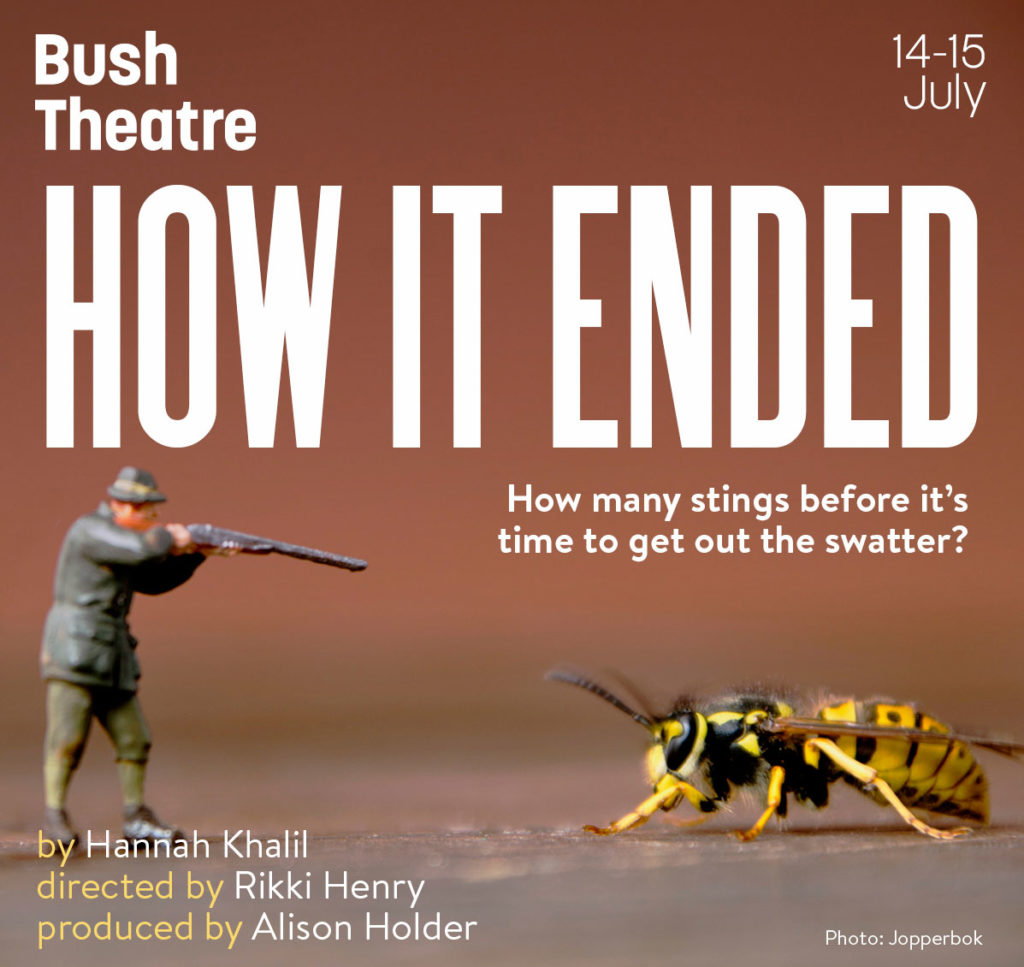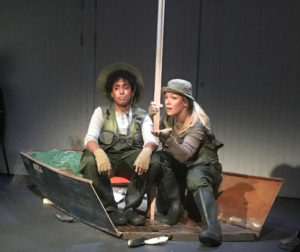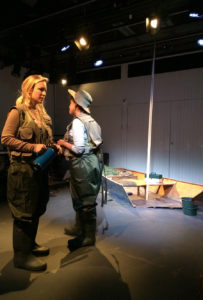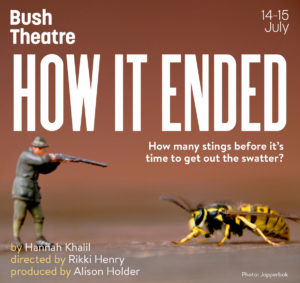Ever been afraid to write a play actively involving an audience? Or to have actors break character? Editor Jennifer Richards caught up with Hannah Khalil after the performance of her play ‘How It Ended’, who shares her best advice for creating experimental theatre.
The Experiment: An Audience Member’s View
I feel like I should start this by holding my hands up and admitting that a few Saturdays ago at the Bush Theatre, I got played. But on the flipside, as a writer, I got a masterclass in how to create experimental theatre. Let me explain.
On this particular Saturday, I saw the second of two performances of ‘How It Ended’, created as part of Bush Theatre’s inaugural Project 2036, by writer Hannah Khalil, director Rikki Henry and producer Alison Holder.
The idea behind the show was to design a theatrical experimental to see if the audience’s response to a play could be affected by events that happened even before they took their seats. This included undercover actors on the day all milling around as we waited to get into the studio.
Now you’re embedded in the experiment, picture an unsuspecting me sitting on a table outside. One of the girls sitting next to me spilled a drink on another’s work, making me turn a subtle tomato-shade of red watching them shout at each other.
I even texted my friend to say how uncomfortable I felt. It wasn’t until the end of the play, when these girls stood up from the audience to take a bow, that I realised what had happened.
Behind The Scenes: A Playwright’s View
I’ve always been scared about writing experimental theatre, and How It Ended is as untraditional as you can get. It’s not something we would necessarily recognise as a play, breaking the norms by looking at different ways we can use the theatrical form.
Actors frequently broke character, discussing the director and even taking a poll of the audience – that’s when they’re not busy tricking them with stooges of course. It’s easy to see why playwright Hannah Khalil described this as the hardest thing she ever had to write, but what playwright doesn’t love a challenge?
After the show, I got the chance to chat to her about how to write experimental theatre, for all those like me, scared of the unknown!
Here are her top tips:
Start with a central question
Part of the reason I’ve only ever written more traditional scripts is because I’d never know where to begin with writing a more immersive piece.
Hannah explained, ‘It’s about coming up with a concept and a central question of the play and figuring out how to explode that so the theme is explored not just in the story but in other meta-theatre ways.’
With How It Ended, the idea of irritation building was central to the performance. And this question was already posed even before the play started, with actors dotted around outside being loud and getting on the nerves of fellow audience members.
When it comes to experimental theatre, a playwright’s work isn’t just about the words on page, you have to look at the issue of what you want to say even outside of the script.
It’s all about your audience
Hannah described how with experimental theatre, you can’t view the audience just as passive members, where their job is to sit there and respond to the show later.
She said, ‘From the start, you’re thinking about how the audience might respond’, with it being about direct involvement. But this doesn’t mean the audience should dictate your piece, especially as How it Ended was all about seeing if you could manipulate the audience’s response.
Hannah added, ‘There’s something really appealing about having more control of what the audience think’.
Make something that could only be a play
It’s this comment from Hannah that’s sticks in my mind every time I go to write something now. She told me how, ‘For any playwright, you’ve got to think why something is a play.’
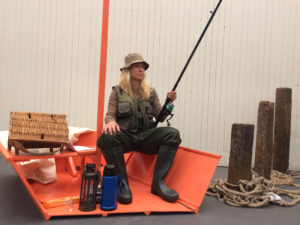
If your piece could work in any other form, then it won’t work as effectively as it should on stage. How It Ended could never have been anything apart from a piece of theatre, and it played to that strength, using actors in the audience and talking directly to us.
It thrived off the energy that only a play can have, and any playwright should be using this in their writing, especially when it comes to experimental work.
So…. Did the experiment work?!
With an experiment, you never know how it’s going to turn out, and in this particular piece, there were no clear results about whether the audience’s reactions were manipulated.
But the learning process of making unconventional theatre and pushing audience boundaries made an insightful piece of theatre that challenged the very idea of what theatre is.
Hannah said that, ‘Ultimately we realised it’s hard to measure if one person’s attitude would have been different if they hadn’t had the pre-show elements. But those who did engage with these seemed to find the piece even more stimulating and exciting.’
And that’s what theatre should be, something that actively engages your audience rather than just viewing them passively. The experimental part of How It Ended enabled the audience to feel involved with the performance.
So I was very glad that I got played, and had to send another message to my friend explaining that the fight was fake when she replied with ‘Omg, what the hell?! Leave the table!’
Writing experimental theatre isn’t easy, because it’s not just about how your characters are reacting, it’s your audience too. But this type of immersive theatre also reaps more rewards, with Hannah saying how, ‘As a writer, it’s really exciting finding out what people think of a piece.’
And Hannah’s advice if you want your piece to get noticed?
‘Make it a challenge to the director and creative team, and it will stand out!’
Hannah Khalil is a Palestinian/Irish Playwright who was the recent recipient of The Arab British Centre’s Prize for Culture 2017. She was the Writer on attachment at the Bush Theatre from 2016-17 as part of Project 2036, and her play The Scar Test just finished a successful run at Soho Theatre. You can find out more about her work here: hannahkhalil.com

